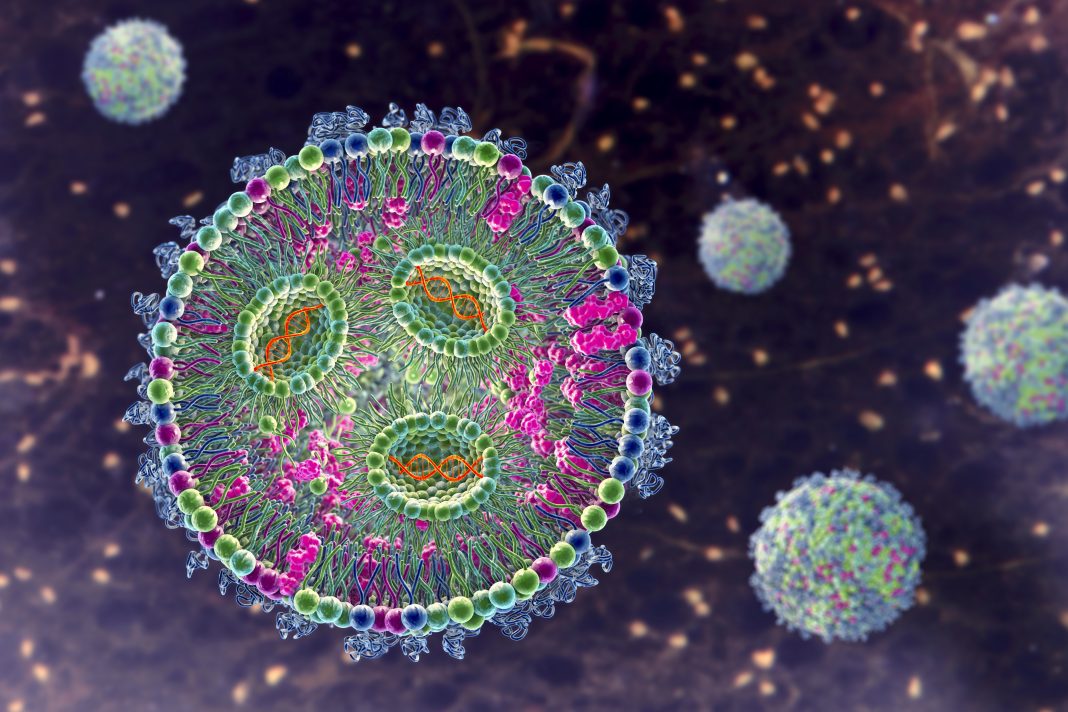The development of efficient delivery technologies has lagged behind significant advancements in nucleic acid therapeutics, such as antisense oligonucleotids (ASOs), short interfering RNA (siRNA), mRNA therapeutics, and genome editors. There must be a renaissance in genetic medicine delivery for these strategies to realize their full potential. Increasingly, the greatest hope appears to lie in the development of non-viral nanotechnology platforms.
Liberate Bio was established with a yet-to-be-determined amount of seed funding from Khosla Ventures to create cutting-edge delivery systems for tissue-specific nucleic acid therapeutics. Based in Boston, the startup’s objective is to enable the precise delivery of DNA, RNA, or other cargo to disease-relevant tissues. This goal is based on the work of Michael Mitchell, Assistant Professor of Bioengineering at the University of Pennsylvania, and the leadership of serial entrepreneur Nessan Bermingham, co-founder and founding CEO of Intellia Therapeutics (among other biotechs), now an Operating Partner at Khosla Ventures.
The value of delivery
When Mitchell joined Bob Langer’s lab at MIT in 2014 as a postdoc, most experts said that working on lipid nanoparticles (LNPs) was a bad idea. But by the time he’d completed his postdoc, a serious effort was underway to create LNPs for large payloads such as mRNAs and ribonucleoproteins. When Mitchell opened his lab at Penn in 2018, he immediately started researching how to use non-viral delivery systems, such as LNP or upcoming next-generation systems, to reach target cells and tissue types. “Even before COVID, you could sense an increase in interest from industry and others,” Mitchell told GEN Edge. “Then COVID hit, and we started getting requests left and right to make mRNA therapeutics and other types of DNA or RNA cargo a clinical reality.”

Around the time Mitchell was a postdoc in Langer’s lab, Bermingham and Intellia’s Principal Scientist Stephen Scully spent a lot of time developing technology for particle formulations. Later, while developing their pipeline for ALS and frontotemporal dementia at Triplet Therapeutics, Bermingham and Scully encountered the challenge of accessing the deep regions of the brain to target the appropriate cells and obtain overall biodistribution.
Due to the lack of tissue-specific delivery methods, clinical uses of non-viral delivery vectors, such as LNPs, have been restricted to vaccine and liver indications. “We have these amazing modalities, but we’re still limited to the liver and eye, which is one of our industry’s current challenges,” said Bermingham. “As we examined the market, generally speaking, there is not much data or approaches to get you out of the liver and into other cell types.”
Bermingham and Scully spent time looking at viral delivery systems but wrote them off a priori—the primary reason being the issues around AAV and the consistent challenges in the clinic. According to Bermingham, the FDA has raised multiple red flags around AAV as a delivery vehicle and, from a chemistry, manufacturing, and controls (CMC) manufacturing standpoint, extremely challenging scale-up manufacturing (batch-to-batch analysis and consistency). “We wanted to go into a synthetic system, and that led us to nanoparticles,” said Bermingham. “That’s where we started. So, we decided to build Liberate Bio with Michael Mitchell and bring him on board as a founder.”
Tissue-trophic, payload-specific
Mitchell and Bermingham believe there will be different modalities for different delivery vehicles. As Mitchell explained, “the vision was very much aligned on developing next-generation delivery systems to escape the liver—not just developing those delivery systems, but as new types of cargo come into play, small changes in the cargo necessitate new types of delivery systems. That’s what Liberate Bio focuses on.”
According to Bermingham, “We’re building a suite of delivery capabilities that are tissue-tropic and payload-specific. We learned that lesson from our work at Intellia, where we took an LNP developed for siRNA and had to put a lot of work into getting it to function and be usable in the area of mRNA with a guide.”
But the work at Liberate Bio will go beyond LNPs. “When you look at the utilization of things like polymers, they played a major role from an overall delivery standpoint in the long history of the space,” said Bermingham. “For nucleic acid-based drugs, LNPs have grabbed the attention of everybody in this bin and have shown data that clearly shows you can do it. We’ve got to keep an open mind as we think about being able to get out of the liver and go to other tissue types. And certainly, polymers are another example of that where it’s applicable for exploration.”
While still in the early stages, with just around ten people on board, Liberate Bio has no intention of being a service provider. “The intent is to have our own pipeline of drugs that are part of our proprietary pipeline,” said Bermingham. “But the reality is, you can’t do all of it. We also want to work with other groups so that they can use our delivery systems for their payloads and therapeutic areas. Even if you can get that tropism for your delivery vehicle and get that initial sustained expression, running those clinical trials is hard. You need a very large balance sheet to determine the right patient population and the right stage of a patient to go after. It’s things like that you look to do with a large partner.”
Matching cargo to nanoparticles
There are two major attributes to Liberate Bio. The first is the use of computational modeling. According to Bermingham, the biotech sector has historically been very ineffective at considering technologies that would allow us to conduct analysis and modeling in silico. However, Bermingham noted that these technologies are at a “very good juncture now” when considering resources like the AlphaFold Protein Structure Database.
“We need to start credibly using them to direct us in drug discovery and development,” said Bermingham. “I joined Khosla to bring that capability, technology, and expertise to companies like Liberate. This is one of the multiple companies Khosla Ventures we invested in to allow us to leverage the power and applications of AI/ML.”
The second is the payload. According to Mitchell, the challenge is that if the cargo and the delivery system don’t match up, the particle assembly will be fundamentally different. According to Mitchell, “every piece of cargo is different: circular RNAs are just fundamentally different cargos, and self-amplifying RNAs are much larger. The cargo must match the delivery system, which is difficult for businesses to do. Whether it’s Lilly, Pfizer, or another company, they frequently contact us about it; however, they simply lack the necessary team and expertise.”
The primary objective of Liberate will be to develop a high-throughput platform for screening vast libraries of nanoparticle delivery vehicles in physiologically relevant models. Mitchell explained, “The systems Liberate Bio is developing to screen hundreds or thousands of these particles are all specifically designed for the cargo of interest. The high-throughput screening capabilities we’ve developed in the lab and are translating now with Liberate Bio can identify fundamentally new components for delivery.”
The screening system from Liberate Bio tests for delivery to various tissues by arbitrarily changing several nanoparticle parameters. For LNPs, the type of lipid and nanoparticle as well as the formulation as a whole are important considerations. The total payload release for tissue types takes those characteristics into account. According to Bermingham, “Our industry knows virtually nothing about getting out of the liver and going in and targeting specific cell types—you need to take an unbiased approach.”
Bermingham believes that from a screening perspective, it will be comparable to screening viral libraries, looking for detection trends towards a particular cell type and then refining that. “We don’t know what the thresholds or cell types from a tropism standpoint are going to be,” said Bermingham. “That’s where the importance of computational power comes into play to help you identify those signatures and then build on that.”
Special delivery
Delivery of genetic medications is one of Khosla Ventures’ top priorities. “We’re extremely excited about this,” said Bermingham. “This is one of the first companies that I founded after joining Khosla. One of our areas of interest is around delivery which compliments other areas we have started companies around including novel editing technologies and N1+ drugs. Liberate represents an investment in in vivo delivery, we also recently invested in an ex vivo delivery company that opens the potential for point of care cellular modification. Both of these companies are focused on addressing the broad therapeutic toolbox we have available to us today.”


